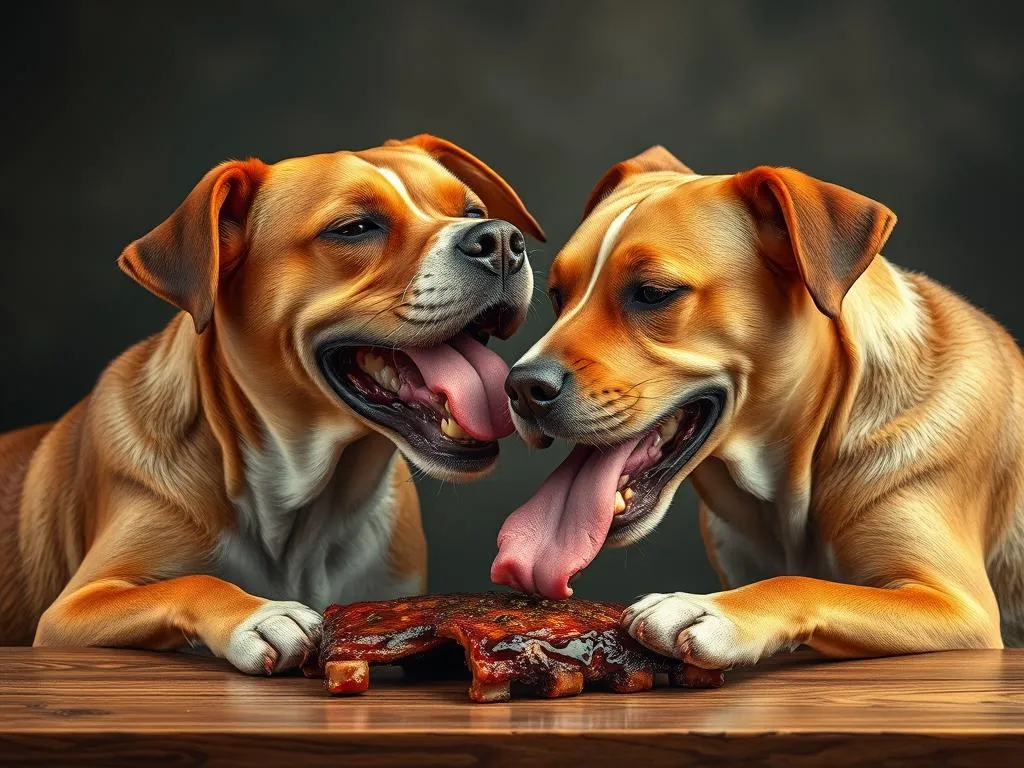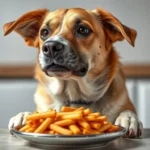
Introduction
When it comes to dog nutrition, understanding what your furry friend can and cannot eat is essential for their health and well-being. Proper nutrition significantly impacts a dog’s energy levels, coat quality, and overall health. However, there are numerous misconceptions surrounding dog diets, leading many pet owners to unknowingly feed their dogs harmful foods.
One common question that arises is: can dogs eat ribs? This inquiry is crucial as certain foods can pose risks to our canine companions. In this article, we will explore the nutritional needs of dogs, the types of ribs available, the risks associated with feeding ribs to dogs, and safe alternatives for a healthy diet.
Understanding Dog Nutrition
Basic Nutritional Needs of Dogs
Dogs, like humans, require a balanced diet to thrive. Their nutritional needs can be broadly categorized into macronutrients and micronutrients.
- Macronutrients:
- Proteins: Essential for growth, muscle development, and overall health. Quality protein sources include lean meats, fish, and eggs.
- Carbohydrates: Provide energy and support digestive health. Safe carbohydrate sources include whole grains and vegetables.
-
Fats: Important for healthy skin and coat, as well as energy. Healthy fats can be found in fish oil and chicken fat.
-
Micronutrients:
- Vitamins: Vital for various bodily functions, including immune response and bone health. Often found in fruits and vegetables.
- Minerals: Important for bone structure and metabolic processes. Common sources include meat, dairy, and leafy greens.
The Role of a Balanced Diet
A balanced diet ensures that dogs receive all the necessary nutrients they need to maintain their health. This includes a mix of protein, carbohydrates, fats, vitamins, and minerals. Common dog food ingredients like chicken, brown rice, and carrots provide essential nutrients while supporting digestion and overall health.
Neglecting a dog’s dietary needs can lead to various health issues, such as obesity, digestive problems, and nutrient deficiencies. Therefore, it’s crucial to choose dog food that meets AAFCO (Association of American Feed Control Officials) standards for complete and balanced nutrition.
Can Dogs Eat Ribs?
Types of Ribs
When discussing whether dogs can eat ribs, it’s essential to understand the different types of ribs available:
- Pork Ribs: Commonly grilled or smoked. While they may seem tasty, pork ribs can pose several risks to dogs.
- Beef Ribs: Typically larger and meatier than pork ribs, beef ribs can also be problematic for dogs.
- Lamb Ribs: Less commonly consumed, but still a potential risk for dogs.
Nutritional Value of Ribs
Ribs contain certain nutrients that can be beneficial:
- Protein Content: Ribs are a good source of protein, which is essential for muscle development and repair.
- Fat Content: They also contain fat, which provides energy but can lead to obesity if consumed excessively.
- Other Nutrients: Depending on the type, they may offer minerals like calcium and phosphorus, which are beneficial for bone health.
However, the risks often outweigh the benefits when it comes to feeding ribs to dogs.
Risks of Feeding Ribs to Dogs
Feeding ribs to dogs comes with several significant risks:
- Bacterial Contamination: Ribs can carry harmful bacteria like salmonella and E. coli, which can lead to severe gastrointestinal illness in dogs.
- Bone Splintering and Choking Hazards: Cooked bones, including ribs, can splinter easily, causing choking or serious internal injuries.
- High-Fat Content: Many ribs are fatty, which can lead to pancreatitis—a serious condition with symptoms like vomiting, diarrhea, and abdominal pain.
Given these risks, it’s best to avoid feeding your dog ribs altogether.
Safe Alternatives to Ribs
Cooked Meat Options
If you want to treat your dog to some meat, there are safer cooked options available:
- Chicken: Skinless, boneless chicken breast is a great source of protein.
- Turkey: Lean turkey can also be a healthy choice, but ensure it’s unseasoned and free of bones.
- Fish: Cooked fish like salmon or sardines can be beneficial, providing healthy omega-3 fatty acids.
These alternatives not only provide necessary nutrients but also avoid the dangers associated with feeding ribs.
Dog-Safe Treats
In addition to cooked meats, consider offering your dog commercially available, veterinarian-approved treats. These are formulated to meet dogs’ nutritional needs while being safe to consume.
If you prefer homemade treats, here are a couple of easy recipes:
- Peanut Butter and Pumpkin Cookies: Combine whole wheat flour, pumpkin puree, and unsweetened peanut butter to make tasty cookies.
- Carrot and Apple Bites: Mix shredded carrots, grated apples, and oats for a nutritious snack.
These alternatives can satisfy your dog’s cravings without compromising their health.
Signs of Digestive Issues in Dogs
Even with careful dietary choices, dogs may experience digestive issues. Being aware of the symptoms is essential for timely intervention.
Common Symptoms
Watch for the following signs that may indicate digestive distress:
- Vomiting: Frequent vomiting can signal an adverse reaction to food.
- Diarrhea: Loose stools can indicate digestive upset or food intolerance.
- Lethargy: A sudden lack of energy may suggest an underlying health issue.
When to Consult a Veterinarian
If your dog exhibits any of these symptoms, it’s crucial to consult a veterinarian. Professional advice is essential, especially if symptoms persist or worsen. A veterinarian can provide tailored dietary recommendations and rule out any serious conditions.
Conclusion
In summary, while the idea of sharing your meal, particularly ribs, with your dog may be tempting, it’s important to prioritize their health. Ribs can pose significant risks due to bone splintering, bacterial contamination, and high-fat content. Instead, opt for safer cooked meat alternatives and dog-approved treats that will satisfy your dog’s cravings while ensuring they receive the necessary nutrients.
Understanding your dog’s dietary needs is essential for their health and happiness. Always consult with a veterinarian concerning your dog’s diet to make informed decisions that promote their well-being.
Frequently Asked Questions (FAQs)
Can all dogs eat ribs?
No, not all dogs should eat ribs. The risks associated with bone splintering and bacterial contamination make them unsafe for canine consumption.
What should I do if my dog eats a rib?
If your dog consumes a rib, monitor them for any signs of distress. If they exhibit symptoms like vomiting or lethargy, consult a veterinarian immediately.
Are there specific breeds that should avoid ribs?
All dog breeds can be at risk when it comes to eating ribs. However, smaller breeds may be more susceptible to choking and digestive issues due to their size.
What human foods are safe for dogs?
Safe human foods for dogs include lean meats (like chicken and turkey), certain fruits (such as apples and blueberries), and vegetables (like carrots and green beans). Always check for specific food safety before sharing.
By understanding the risks and making informed dietary choices, you can help ensure your dog’s health and happiness for years to come.









